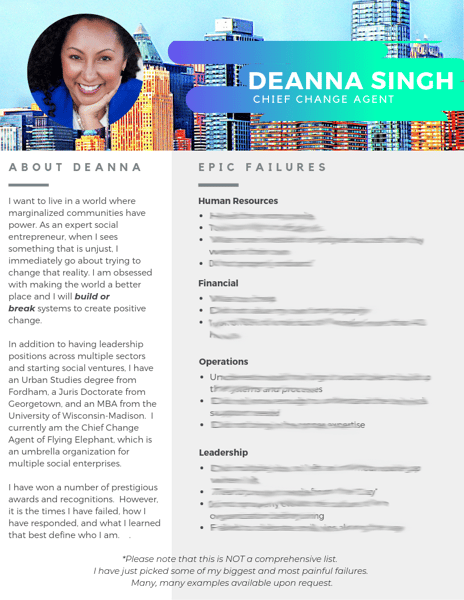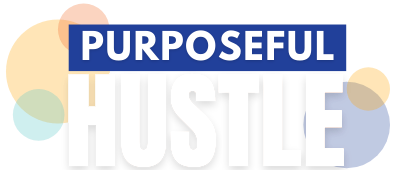A "Failsume" is a list of all my failures and mistakes throughout my career. The purpose of sharing this information is for you to learn what to avoid when faced with the same situations. I hope you can find value in this information. Also, each part of the Failsume is accompanied by an R&B song. This week's Onboarding Fail is associated with the Jackson 5's "ABC" --> Click here to listen to it on Youtube. Your employees need to know the ABCs of your organization and personality for them to effectively work together. We're adding a new song every week.
what to do with new employees
Today the epic fail that I want to share with you is that I have really screwed up the onboarding process. A leader has to bring on people onto their team and show people what the culture is going to be. An excellent way to do that is to onboard them.
Onboarding (corporate talk) - the process used to transition employees into your company and to get them situated in new roles
Early on in my career when I was managing people and bringing people into new companies, I would often skip through the onboarding process. You see --> I like to learn on the fly; trial by fire. I have come to understand that that is not the best way to bring in people onto your team.
I used to say to people, "Hey, you'll figure it out, you know? Welcome!" I would be gracious and excited about having them, but not necessarily give them the tools or spend the time with them on the front end like I should have done. Early in my career as a leader, there were so many times where I would have somebody and they would come onto my team.
Now for some people, this fly-by-seat of the pants process worked and it was awesome, but the majority of people were nervous when they first started out. They don't know anybody. They don't know what the culture was. They didn't know the expectations. They didn't even know how to find the garbage can or where the files were located. I've come to understand just how important onboarding can be.
First of all, it really sets the tone. If you as the leader, take the time to work with the people who are going to be on your team and spend time talking about what the organization is all about. Spend time together because you value them as people not just their talents. Doing this really sets the tone for your organization.
This process also gives me time to review my processes and organization. If I'm going to bring somebody into the company and show them their role there, it's critically important whatever I'm teaching is the best way to do it. If it's not the best way, I try to figure it out. Sometimes new people figure out that there are all kinds of holes in my current procedures.
I may have to tell them this is how we currently do it and I see these gaps. What do you think we should do to change it? It's awesome because it lets me take a real life look and just check in to see what's actually happening in the company.
It also builds trust. Have you ever had any good relationship where you just were "boom, this is me, bye!"? You then assume that your relationship is strong. Trust me, it's not.
That's not how real relationships work! When you're able to spend some one-on-one time with people and you're able to help them meet other people on their team and really know what it looks like to be successful on their job, it allows them to build some trust in you.
With that being said, there are a couple of things I absolutely have to have on any of my onboarding sessions.
strategy #1 - talk about the why
We have to spend some time together with anybody who's coming onto the team and talk about the why.
Why they're there
why I'm here
why the company exists
What we're trying to accomplish together
We have to dream together and talk about the vision of the organization. There have been times I've talked to new employees and they really don't understand the company. What? It's such a missed opportunity if you don't spend the time upfront to understand the why.
strategy #2 - disc profiles
What's a DISC profile? Well, a DISC profile is a test that takes 20 minutes to administer. It's pretty cheap to to administer it too and what you do is you are able to answer a couple of questions and it gives you back and understanding of your professional personality. It details your work style, where you excel, and where you might irritate people. I like to hand that to my employees. I want people to understand like this doesn't exhibit everything about me, but it gives them a good sense of how they might want to deal with me when things get tense or why am I behaving in a certain way. It also reveals tips and techniques they might be able to use with me.
I also ask that all of my full time employees take the DISC assessment because it's critically important for me to understand their work styles. There are things that make all of us awesome, but there are also some things that make all of us absolutely irritating. It's necessary to understand these characteristics and use that as an opportunity for growth and honest dialogue with one another.
strategy #3 - employees talk to each other
This may be controversial, but I've learned that giving my employees an opportunity to talk to other people I'm managing without me being in the room. Why is that important? I think it's important because we all wonder "who is this person that I'm going to be working with? Who is this person that I'm going to be reporting to? What is she all about?"
If you are living in your purpose and your culture is strong, you should be able to walk out of the room with confidence and know that the people who are on your team are going to represent you accurately. There will probably be some good and probably some bad characteristics shared, but at least they're going to do it in a way that is going to allow everybody to move forward.
Did I make an oops early in my career by just throwing people into the work? Just assuming that passion would be enough to drive us through? Absolutely! Do I make that mistake now? Absolutely not! Is it a time consuming process? Yes. It's so time consuming, right?
You have to get ready for the person. You have to get all the materials in one spot. You have to create standard operating procedures (just a fancy word for Word document where you keep all of the things that everybody needs to have quick access). But guess what? If you spend the time at the front end, you don't have to worry about what it feels like on the back end because you're able to move faster as a team if you have onboarding in place.
I hope you enjoyed my fail of the day of not properly onboarding. Properly onboarding is such an amazing tool in my toolkit.
Thank you so much. I'll see you next week!
THE FAILSUME









Leave a Comment